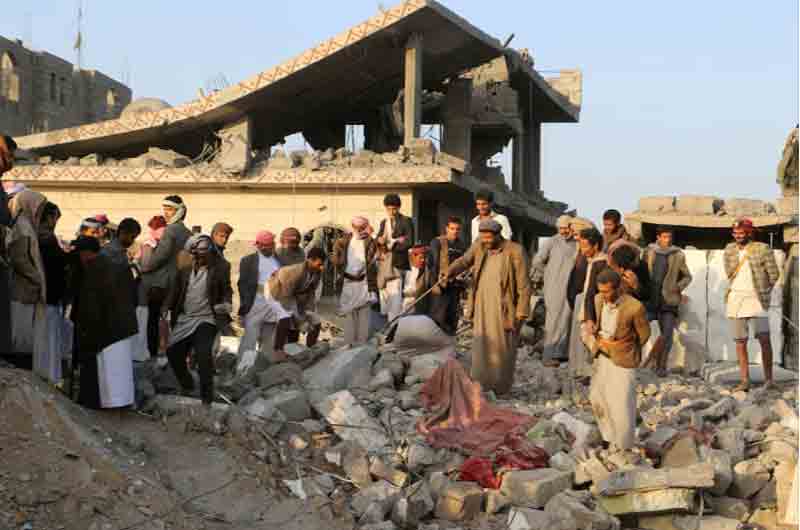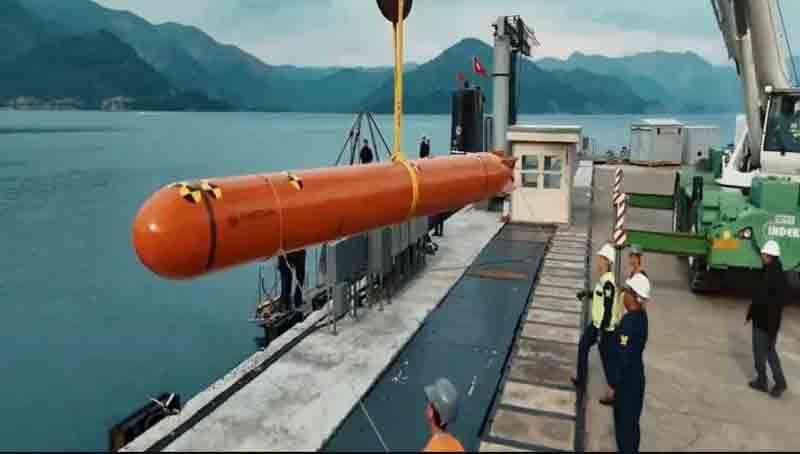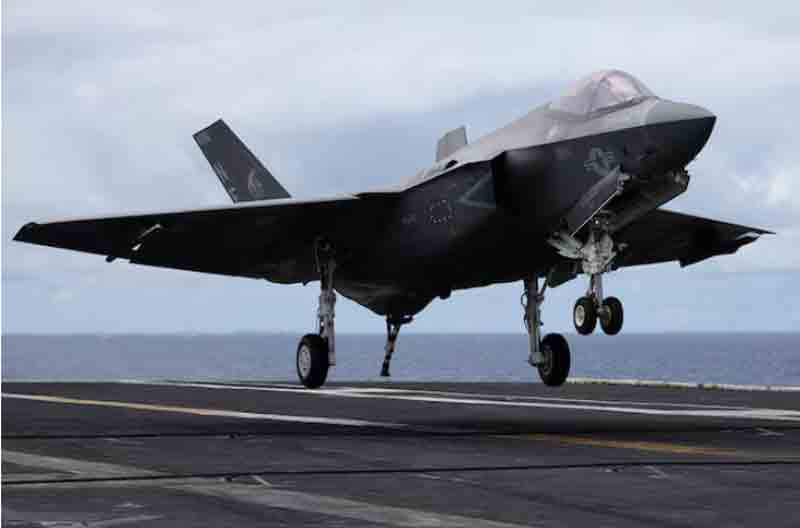On Monday, U.S. President Donald Trump declared that Iran would be held accountable for any assaults conducted by the Houthi group it supports in Yemen, coinciding with his administration’s escalation of the largest U.S. military operation in the Middle East since his return to the presidency.
In response to the Houthi movement’s threats against international shipping, the U.S. initiated a new series of airstrikes on Saturday. According to Houthi-operated Al Masirah TV, the Red Sea port city of Hodeidah and the Al Jawf governorate, located north of the capital Sanaa, were among the targets on Monday.
Trump stated on his Truth Social platform, “From this moment on, every shot fired by the Houthis will be regarded as a shot fired from the weapons and leadership of IRAN, which will be held accountable and face severe consequences!” The White House emphasized that Trump’s warning was intended to convey the seriousness of the U.S. stance to Iran.
The Pentagon reported that it had targeted over 30 locations thus far and would employ overwhelming force against the Houthis until they ceased their attacks. Pentagon spokesperson Sean Parnell clarified that the objective was not to pursue regime change.
Lieutenant General Alex Grynkewich, the director of operations at the Joint Staff, noted that the current campaign against the Houthis differs from the previous one under former President Joe Biden, as it encompasses a wider array of targets, including senior Houthi drone specialists. Grynkewich indicated that dozens of Houthi members were killed in the recent strikes, whereas the Biden administration is not believed to have focused on high-ranking Houthi leaders.
The Houthi-controlled health ministry reported on Sunday that at least 53 individuals had died as a result of the attacks, including five children and two women, with 98 others injured.
The Houthis, an armed faction that has seized control of Yemen’s most densely populated regions despite nearly ten years of Saudi-led airstrikes, have initiated numerous attacks on vessels off the Yemeni coast since November 2023, thereby disrupting international trade.
A U.S. official informed Reuters that these strikes could persist for several weeks. In response, Washington has intensified sanctions against Iran while seeking to engage it in discussions regarding its nuclear program.
Last week, an Emirati official conveyed a letter from President Trump, who assumed office in January, suggesting nuclear negotiations with Tehran. However, this proposal was dismissed by Supreme Leader Ayatollah Ali Khamenei, who labeled it as “deception” from Washington.
On Monday, Iranian foreign ministry spokesperson Esmaeil Baghaei stated that Tehran would reply to the letter “after thorough examination.” The Houthis assert that their attacks, which have compelled shipping companies to divert vessels on longer and costlier routes around southern Africa, are in solidarity with Palestinians amid Israeli strikes on Gaza. The U.S. and its allies view these actions as indiscriminate and a threat to global commerce.
Houthi leader Abdul Malik al-Houthi declared on Sunday that the militants would target U.S. ships in the Red Sea as long as American assaults on Yemen persist. Under al-Houthi’s leadership, the once disorganized group has transformed into a formidable force of tens of thousands of fighters, amassing a stockpile of armed drones and ballistic missiles. Saudi Arabia and Western nations claim these weapons originate from Iran, a charge Tehran denies.
While Iran supports the Houthis, the Houthis reject the notion of being Tehran’s puppets, and experts on Yemen suggest their motivations are primarily rooted in domestic issues.
The military spokesperson for the Houthis claimed in a televised address early Monday, without presenting any evidence, that the group had executed a second assault on the U.S. aircraft carrier USS Harry S. Truman in the Red Sea.
“AXIS OF RESISTANCE”
The Houthis are part of what is referred to as the “Axis of Resistance,” an alliance of regional militias opposing Israel and the West, which also includes the Palestinian militant organization Hamas and Lebanon’s Hezbollah, with support from Iran. Since the Hamas attacks in October 2023, Israel has significantly diminished the strength of many of Iran’s regional allies. Israel has targeted and eliminated key leaders from both Hamas and Hezbollah, and the decline of another Iranian ally, Bashar al-Assad of Syria, has further weakened Tehran’s influence. Nevertheless, the Houthis and pro-Iranian militias in Iraq remain active.
In related violence in the Middle East, an Israeli airstrike reportedly killed three Palestinian men in Rafah, located in the southern Gaza Strip, according to local medical sources. Family members indicated that the three men had ventured out to gather firewood.
Israel’s military, which initiated its Gaza operations following the deadly Hamas-led assaults in October 2023, stated that it had carried out strikes in central Gaza and Rafah targeting “terrorists” who were operating near Israeli forces and attempting to plant explosives.
This ongoing violence highlights the precarious nature of a three-phase ceasefire agreement between Israel and Hamas, facilitated by Qatar, Egypt, and the U.S. There has been no indication of progress in the renewed discussions aimed at maintaining a ceasefire between the two parties.
Last week, the Houthis announced their intention to resume attacks on Israeli vessels navigating the Red Sea unless Israel lifts its blockade on aid entering Gaza. The blockade, which has restricted goods from entering Gaza for 16 days, has exacerbated the humanitarian crisis for the enclave’s 2.3 million residents, the majority of whom have been displaced due to the ongoing conflict. Israel has stated that the blockade is a strategy to exert pressure on Hamas during ceasefire negotiations, affecting essential supplies such as food, medicine, and fuel.
Additionally, Houthi forces have launched drones and missiles targeting Israel. In response, Israel has conducted strikes on various Houthi-related sites in Yemen and has cautioned the militants to cease their attacks, warning that they could face a fate similar to that of Hamas, Hezbollah, and Assad.
Reporting by Idrees Ali, Phil Stewart, Yomna Ehab, Hatem Maher, Ahmed Tolba; with additional contributions from Nidal al-Mughrabi in Cairo; Written by Michael Georgy, Edited by Timothy Heritage and Nia Williams.
Discover more from Defence Talks | Defense News Hub, Military Updates, Security Insights
Subscribe to get the latest posts sent to your email.





